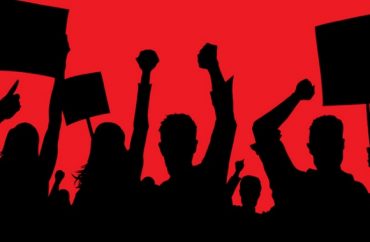
‘Free Speech Reporting Form’
George Mason University eliminated its speech codes nearly four years ago, but didn’t adopt a formal statement defending freedom of expression until late last year.
What is more notable: The public university has flipped the script on bias reporting.
On its new “Free Speech at Mason” page, the northern Virginia school features a “Submit a Report” button at the top left. Here’s what it says: “If you believe your right to free speech has been infringed at Mason, you may submit an incident report by clicking on the button below.”
The message is repeated in bold at the bottom of the free-speech statement:
If you believe your freedom of speech or expression has been disrupted, you may report an incident of disruption of constitutionally protected speech by clicking on the “Submit a Report” button on this page.
The button goes to a “Free Speech Reporting Form” that asks users to share details of the alleged infringement, including who was involved, location and the user’s affiliation with the university.
Many universities tell students to report any speech or behavior that might conceivably show “bias” – never mind threats or harassment – and then teams of officials, sometimes including law enforcement, investigate those complaints.
The University of Washington-Tacoma offers 15 categories of offenses. Professors are a common target of reports to the University of Michigan’s bias response team. The result is chilled speech and suppression of academic freedom.
Some schools have reconsidered whether these teams are worth the threat to constitutional rights, including the University of New Hampshire and University of Oregon.
George Mason is the first I’ve seen, though, to publicly put the fear of investigation into its less tolerant community members – for heckling a speaker, chanting to prevent an event from going forward, or simply blocking a student group’s tabling event.
That’s right – even visual obstruction can be grounds for investigation, as the “Free Speech at Mason” page makes clear:
Members of the Mason community maintain the right to criticize and contest speech they disagree with whether by members of the Mason community or outside speakers who are invited to the campus. But freedom of expression does not permit disrupting or preventing another person’s ability to speak or hindering the ability of others to see or hear that speech. The First Amendment protects the right to peacefully protest, demonstrate, and speak in opposition to other’s speech, as long as it does not impede the constitutionally protected speech of others.
The statement says the community must create “an environment where we can engage in difficult and challenging conversations with civility and mutual respect,” while keeping its commitment to diversity. But it may never use civility as a weapon to “limit the rights of others to express views that we may consider misguided or even offensive.”
The Foundation for Individual Rights in Education, which gave GMU its highest speech rating when it eliminated speech codes in 2015, pointed out the new GMU statement this week.
It’s the 55th institution or “faculty body” to adopt a version of the so-called Chicago Statement, the pioneering free-speech statement the University of Chicago adopted four years ago, according to FIRE. GMU is the sixth school to both earn FIRE’s “green light” rating and adopt a version of the Chicago Statement. (Only one private school – California’s Claremont McKenna College – is on that short list.)
Read the “Free Speech at Mason” page and FIRE post.
MORE: Meet the professor taking on UVM’s bias response team
Like The College Fix on Facebook / Follow us on Twitter






Please join the conversation about our stories on Facebook, Twitter, Instagram, Reddit, MeWe, Rumble, Gab, Minds and Gettr.